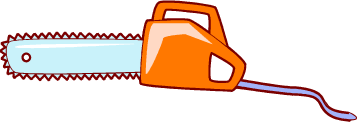How to Get Your Toddler to Combine Words: Part 1 Going Beyond Single Words
How to Get Your Toddler to Combine Words: Part 1 Going Beyond Single Words
Several of my upcoming posts will focus on how to target word combinations.
Photo Credit: d o l f i
I have written many posts on how to encourage your toddler’s first few sounds and words -
Before First Words - Using Fun Sounds to Encourage Your Toddler's Communication
7 Ways to Get Your Toddler to Communicate
7 Ways to Promote Communication Without Frustrating Your Toddler
My Toddler Pinches and Bites When I Try to Get Her to Talk
Why Does My Toddler Pull and Point but Not Talk?
Getting Your Toddler to Talk - How to Use Self Talk and Parallel Talk
On page 5 of My Toddler Talks: Strategies and Activities to Promote Your Child's Language Development, I write about the magical “word spurt”. This vocabulary explosion supposedly appears around 18 months when a child has approximately 50 words in his or her repertoire. By two years old, the word count grows to between 250 to 350 words and by three years old it nearly doubles to 600 words. Language growth is similar to rolling a snowball downhill. According to some theories, it’s easier to learn new and more challenging words once you have acquired and mastered the simple ones. And, it’s easier to combine words when you have enough in your repertoire.
Children who appear to have these spontaneous word spurts have the ability to learn new words quickly without explanation or targeted intervention…it happens naturally. They realize that objects have names and use the process of elimination to figure out the names for objects they don’t know.
For instance, if mom says, “Don’t touch the chainsaw” (Folks, this is a wild example to keep your attention), the child will rule out her nearby ball and innocent baby doll because she knows the names of these familiar objects. However, this dangerous chainsaw is something she has not seen before and doesn’t know its name. Thus, the child will assume its name is chainsaw. This learning process is known as fast mapping.
It’s easier to eliminate names when you have a sizeable vocabulary to help you. Remember taking multiple-choice tests in high school or college (ah, those blue books)? Ever have to use the process of elimination to select an answer? It was much easier if you could eliminate many of the choices right off the bat.
Children who have a harder time fast mapping look to have a delayed word spurt.
However, over the past several years, there has been more and more debate as to whether word spurts occur during language acquisition. If they do, there is no real consensus on the causes.
Regardless of whether or not word spurts occur, what we, speech language pathologists, parents, and educators want - are for our clients, children, and students to communicate. We want them to communicate effectively, efficiently, and appropriately. This entails combining words to communicate in sentences.
Even though the researchers disagree on the existence and causes of word spurts, we do know that as vocabulary grows, so does the appearance of word combinations and simple sentences.
Thus, my next post will be on vocabulary development: How to Get Your Toddler to Combine Words: Part 2.
Please stay tuned!
In the meantime, please checkout these helpful posts.
Expansions and Extensions to Improve Language
Incidental Learning and Speech Therapy
Vocabulary Development: Why is it Good to Re-Read the Same Book?
7 Ways to Improve Your Preschooler's Vocabulary Through Conversation
Lastly, I always enjoy hearing from you, the reader. I value your feedback and would like to know - what should I write about?? Please let me know.
References:
Hadley, P.A. (2014). Approaching early grammatical intervention from a sentence-focused framework. Language, Speech, and Hearing Services in Schools, 45 (April 2014), 110-116.
Mayor, J. & Plunkett, K. Vocabulary Spurt: Are infants full of zipf? Retrieved from http://mindmodeling.org/cogsci2010/papers/0285/paper0285.pdf
McGregor, K.K., Sheng, L., & Ball, T. (2007). Complexities of expressive word learning over time. Language, Speech, and Hearing Services in Schools,38 (October 2007), 353-364.
Moore, R.K. & Bosch, L. Modeling vocabulary growth from birth to young adulthood. Retrieved from http://lands.let.ru.nl/acorns/documents/publications/Interspeech-2009/Moore-tenBosch-IS09.pdf
Poll, G.H., (2011). Increasing the odds: Applying emergentist theory in language intervention. Language, Speech, and Hearing Services in Schools, 43 (October 2011), 580-591.
University of Iowa. (2007, August 3). Why Do Children Experience A Vocabulary Explosion At 18 Months Of Age?. ScienceDaily. Retrieved April 7, 2015 from www.sciencedaily.com/releases/2007/08/070802182054.htm


